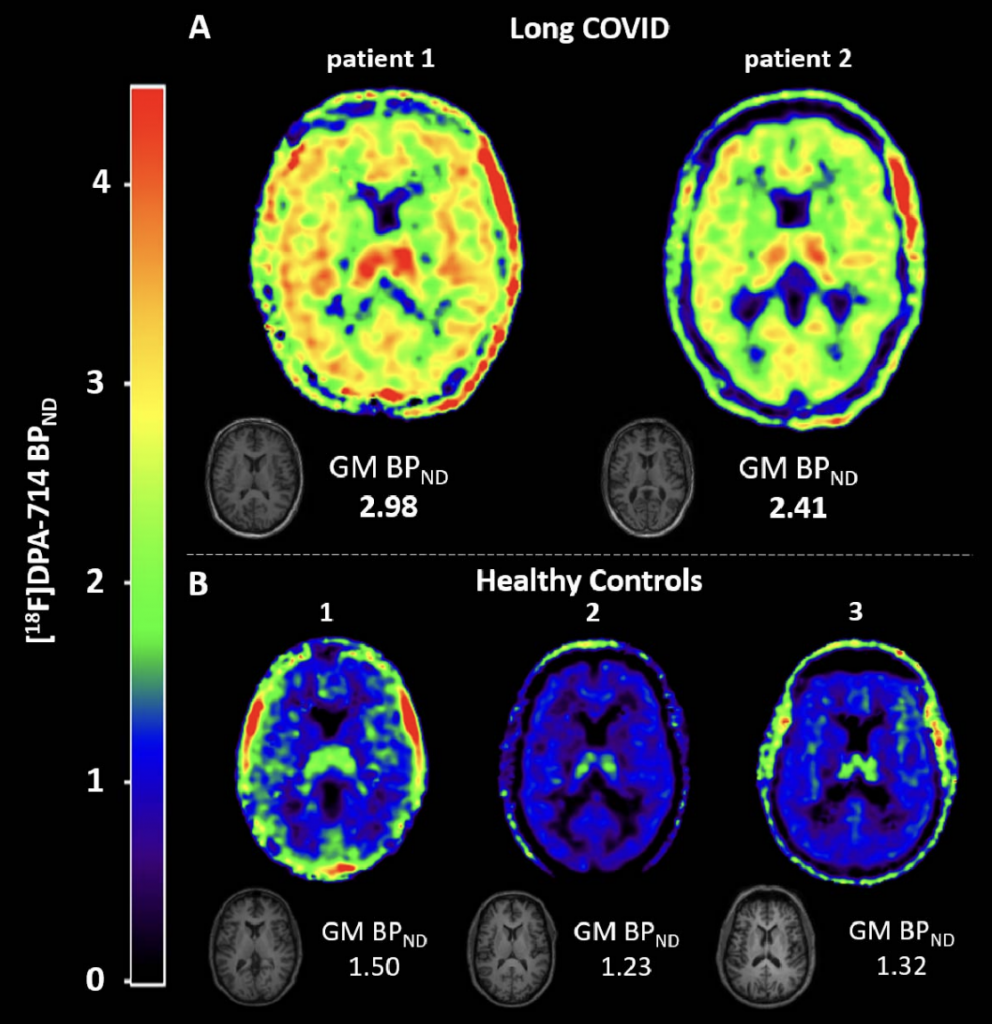This post is also available in Dutch.
Tired, a foggy brain, and difficulty concentrating. Although the pandemic is now officially over, you might have noticed that some people suffer long-term from COVID. Long COVID is common, and although people usually first have flu and cold symptoms during a COVID infection, long COVID patients mainly have psychological complaints. So it appears that something goes wrong in the brain. What is actually known about this? It seems that not the virus itself, but – surprisingly enough – our own immune system is mainly responsible for this.
Inflammation in the brain
When a virus enters the body, your immune system becomes active to defeat the virus as quickly as possible: an inflammatory reaction occurs. All kinds of inflammatory substances are released into the blood. These also affect the brain. As a result, you can often feel tired when you’re sick. This is useful for saving energy to defeat the virus. When the virus is then defeated, the inflammatory substances normally decrease again and you feel better.
With COVID, however, it seems that this inflammation does not disappear for everyone. The inflammation then lasts weeks or months, and therefore also has a long-term effect on the brain. Certain immune cells in the brain become active, these are called microglial cells. This takes a lot of energy and fighting them releases many substances that may cause damage to the brain. For example, it causes the breakdown of cells in the hippocampus, a part of the brain that is involved in memory. This may explain why people with long COVID sometimes experience memory problems.
In addition, these substances cause the breakdown of myelin, an insulating substance that surrounds brain connections. This decrease in myelin causes the connections between brain cells to weaken or break down. This is comparable to a damaged telephone cable: it makes brain areas less capable of communicating with each other and can cause complaints such as brain fog and concentration problems.

The cell’s power plants are broken
Why exactly fatigue occurs in long COVID is not entirely clear. It may be because inflammation costs a lot of energy. But it’s also possible that something goes wrong in the energy management of the cells. There are indications that the cell’s ‘power plants’ work less well in people with chronic fatigue. These power plants, called mitochondria, ensure (among other things) that oxygen is converted into energy. If the mitochondria work less well, there is literally less energy available to the body, which makes you tired.
Why one and not the other?
Unfortunately, much remains unclear about the cause of long COVID. For example, it is not yet clear why some people get prolonged inflammation after COVID and others do not. However, it seems that women are at higher risk. And if you smoke, are older, or already have a psychiatric condition, you are also more likely to get it. But why these people are at a greater risk for long COVID is not (yet) known.
Fortunately, there is also good news. Many people eventually recover spontaneously. And more than 50 studies are currently working on drugs to speed up long COVID recovery. Scientists are also looking at whether we can learn something from other conditions and infectious diseases, such as fatigue after cancer or Lyme disease. Hopefully, these efforts mean that the mystery of long COVID will be solved soon!
Want to read more about how our immune system affects our brain?
Credits
Author: Judith Scholing
Buddy: Felix Klaassen
Editor: Wessel Hieselaar
Translation: Marlijn ter Bekke
Editor translation: Helena Olraun
Image by Kelly Sikkema via Unsplash
